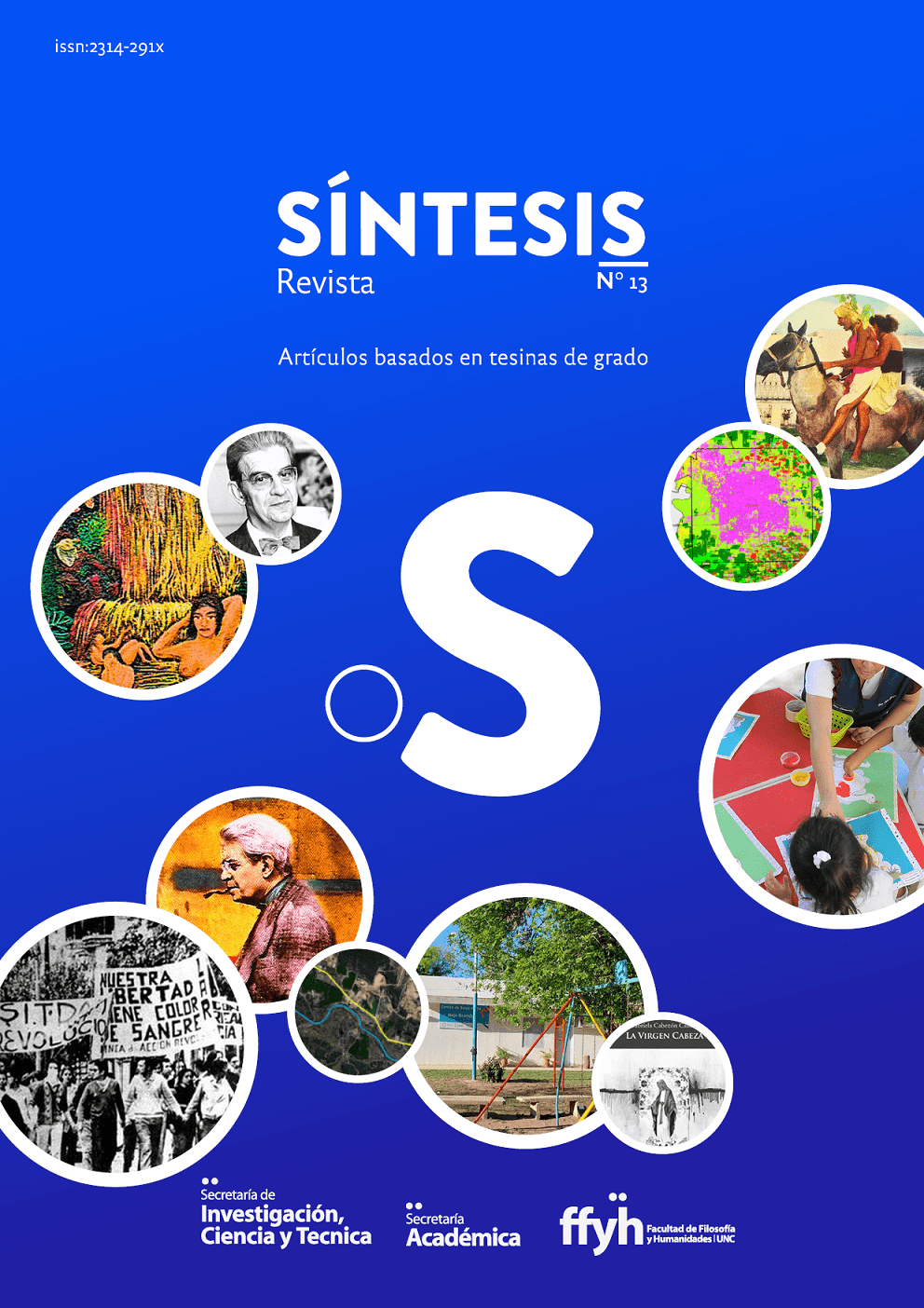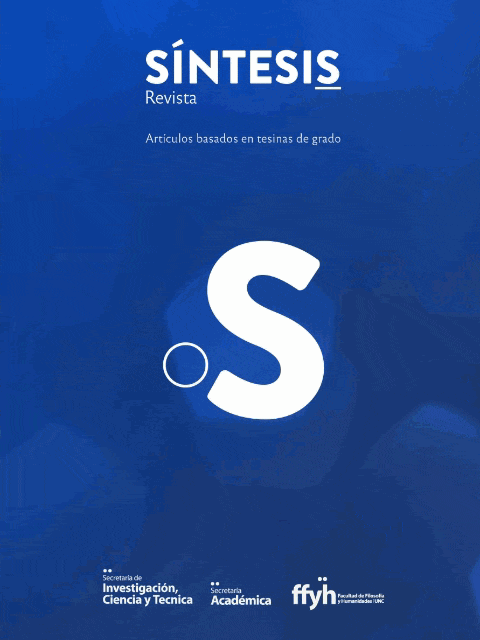Subversion of Desire and Dialectic of Subject
The Influence of Hegel in Lacan’s psychoanalytic theory
Keywords:
Subject; Desire; Other; Dialectics; Psychoanalysis;Abstract
Beyond the theoretical and temporal distances that exist between Hegel and Lacan, we consider that an exhaustive analysis of the sources can give rise to new ways of linking philosophy with other disciplines, in this case psychoanalysis, in order to better understand the importance that philosophy has had in other areas of thought. This article develops part of our research regarding the influence of Hegel on Lacan's psychoanalytic theory, the results of which gave rise to the writing of our TFL, in which we analyzed and reformulated the various ways in which Hegel's philosophy influenced the Lacanian conception of the subject, of desire and of the imaginary and the symbolic. We will return here to what was elaborated in the second chapter of said TFL, focused on the notion of desire and its role in the formation of the subject from its link with the other/Other. Pointing out the differences between their theoretical objectives and the way in which they developed these notions, we address this relationship of influence with the purpose of identifying the points in which, despite Lacan's presumed anti-Hegelianism, Hegel continued to be an inescapable point of reference for him in topics of vital importance for his psychoanalytic purposes.
Downloads
References
• Albano González, D. (2021). El imperativo capitalista: Fantasma sadiano y pseudodiscurso (tesis de maestría). Universidad Nacional de Córdoba.
• Butler, J. (2012). Sujetos del deseo. Reflexiones hegelianas en la Francia del siglo XX. Buenos Aires: Amorrortu.
• Evans, D. (2007). Diccionario de introducción al psicoanálisis lacaniano. Buenos Aires: Paidós.
• Hegel, G. (2009 [1807]). Fenomenología del Espíritu. Buenos Aires: Fondo de Cultura Económica.
• Hegel, G. (1999 [1837]). Lecciones sobre la Filosofía de la Historia Universal. Madrid: Alianza.
• Hyppolite, J. (1974). Génesis y estructura de la Fenomenología del Espíritu de Hegel. Barcelona: Península.
• Kojève, A. (2013). Introducción a la lectura de Hegel. Madrid: Trotta.
• Lacan, J. (2018a [1949]). El estadio del espejo como formador de la función del yo [je] tal como se nos revela en la experiencia psicoanalítica. En Lacan, J. Escritos 1 (pp. 99-106). Buenos Aires: Siglo XXI.
• Lacan, J. (2018b [1953]). Función y campo de la palabra y del lenguaje en psicoanálisis. En Lacan, J. Escritos 1 (pp. 231-310). Buenos Aires: Siglo XXI.
• Lacan, J. (2018b [1954]). Introducción al comentario de Jean Hyppolite sobre la Verneinung de Freud. En Lacan, J. Escritos 1 (pp. 351-362). Buenos Aires: Siglo XXI.
• Lacan, J. (2018b [1955]). Variantes de la cura-tipo. En Lacan, J. Escritos 1 (pp. 311-346). Buenos Aires: Siglo XXI.
• Lacan, J. (2009 [1960]). Subversión del sujeto y dialéctica del deseo en el inconsciente freudiano. En Lacan, J. Escritos 2 (pp. 755-788). México D.F.: Siglo XXI.
• Lacan, J. (1995 [1953-54]). El seminario, Libro 1, Los escritos técnicos de Freud. Buenos Aires: Paidós.
• Lacan, J. (2007a [1957-1958]). El seminario, Libro 5, Las formaciones del inconsciente. Buenos Aires: Paidós.
• Lacan, J. (2014 [1958-1959]). El seminario, Libro 6, El deseo y su interpretación. Buenos Aires: Paidós.
• Lacan, J. (2007b [1962-1963]). El seminario, Libro 10, La Angustia. Buenos Aires: Paidós.
• Lacan, J. (1987 [1964]). El seminario, Libro 11, Los cuatro conceptos fundamentales del psicoanálisis. Buenos Aires: Paidós.
• Lorio, N. y Vargas M. (2015). Sujeto y deseo. Notas sobre una dialéctica paradojal. En Biset et. al. (Eds.), Sujeto. Una categoría en disputa (pp. 175-207). Adrogué: La Cebra.
• Maza, L. (2019) Hegel en Lacan. Las trampas de lo imaginario y la función del lenguaje en la constitución del sujeto. Veritas (43), 29-47. Recuperado de: http://dx.doi.org/10.4067/S0718-92732019000200029.
• Romano, A. (2016). La cuestión del deseo según G. W. F. Hegel y J. Lacan: consecuencias ético-políticas del tratamiento de la Antígona de Sófocles (tesis de licenciatura). Universidad de Buenos Aires.
Downloads
Published
License
Copyright (c) 2023 Síntesis

This work is licensed under a Creative Commons Attribution-NonCommercial-NoDerivatives 4.0 International License.




